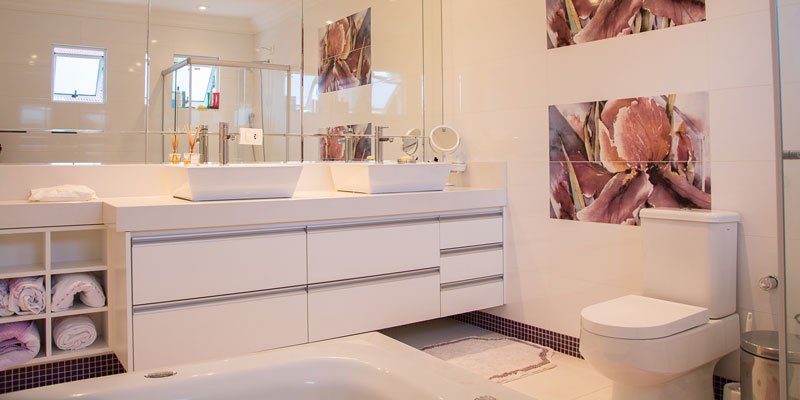Virtually every homeowner has experienced the inconvenience of having their day brought to a screeching halt by a clogged bathroom or kitchen drain. Clogs can damage and shorten the lifespan of your plumbing system. The best course of action is to prevent the clog from happening in the first place. Fortunately, most common drain clogs are easily prevented. Even pouring a 1/2 cup of vinegar and a 1/2 cup of baking soda down your drain every few weeks will create a chemical reaction that will help clear a drain and eliminate unpleasant odors.

Bathroom Drain Clogs
Hair and soap scum are the usual sources of bathroom clogs. Clogs can also be caused by bottle caps, tissue, and other items falling into the drain and getting lodged inside the pipes. Place covers over your bathtub and shower drains to catch hair.
Clogged Kitchen Drains
Most kitchen sink clogs are the result of food going down the drain. Bread, grains, and even cereal can stick to the sides of the drain and collect other bits of food. Grease is another common culprit. As it cools, the grease collects along the drain and catches other food particles. Even dish soap can create a sticky residue on the inside of your drain.
Never pour grease down your kitchen sink. Pour cooking grease into a container that you can throw out with the trash. And use a drain screen to keep stray bits of food from going down the drain.
Garbage Disposal Clogs
Garbage disposals are certainly convenient; however, there are certain items that you should never put down your garbage disposal, including vegetable peels, eggshells, and coffee grounds. These items become fine and paste-like, which can increase the likelihood of a clog.
Never put hard, fibrous, or large food items down your garbage disposal. Most food waste should go into the garbage or compost pile. The disposal is only for small items that may accidentally go down the drain.
What to Do if You Have a Clogged Drain
A plunger is sufficient for most minor clogs, but be sure you have the right plunger for the job. A non-flanged plunger works best for bathroom tubs and sinks. A flanged plunger is best for clogged kitchen sinks and toilets. Try to avoid chemical drain cleaners; they are highly corrosive and can damage your pipes. They also may not remove the entire clog. Plumbing snakes are useful to push through drain obstructions; however, only attempt this if you know what you are doing to prevent damaging your drain or getting the snake stuck.If you cannot remove the clog with a plunger, your best option is to call a professional plumber. You can contact us 24 hours a day for emergency plumbing service.
If you are in Columbia, MO or the mid-Missouri area and believe you have a plumbing problem, contact us.



